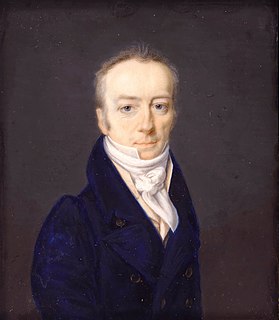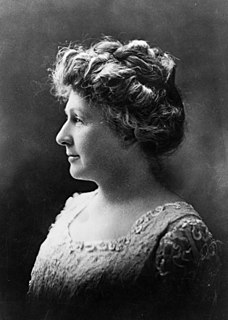A Quote by Max Stirner
Apart from any other basis which might justify a superiority, education, as a power, raised him who possessed it over the weak, who lacked it, and the educated man counted in his circle, however large or small it was, as the mighty, the powerful, the imposing one: for he was an authority.
Related Quotes
There is a kind of grandeur and respect which the meanest and most insignificant part of mankind endeavor to procure in the little circle of their friends and acquaintance. The poorest mechanic, nay, the man who lives upon common alms, gets him his set of admirers, and delights in that superiority which he enjoys over those who are in some respects beneath him. This ambition, which is natural to the soul of man, might, methinks, receive a very happy turn; and, if it were rightly directed, contribute as much to a person's advantage, as it generally does to his uneasiness and disquiet.
If there be a pleasure on earth which angels cannot enjoy, and which they might almost envy man the possession of, it is the power of relieving distress--if there be a pain which devils might pity man for enduring, it is the death-bed reflection that we have possessed the power of doing good, but that we have abused and perverted it to purposes of ill.
Let a man attain the highest and broadest culture that any American has possessed, then let him die by sea-storm, railroad collision, or other accident, and all America will acquiesce that the best thing has happened to him; that, after the education has gone far, such is the expensiveness of America, that the best use to put a fine person to is to drown him to save his board.
A child who passes through many hands in turn, can never be well brought up. At every change he makes a secret comparison, which continually tends to lessen his respect for those who control him, and with it their authority over him. If once he thinks there are grown-up people with no more sense than children the authority of age is destroyed and his education is ruined.
I stand ready to negotiate, but I want no part of laws: I acknowledge none; I protest against every order with which some authority may feel pleased on the basis of some alleged necessity to over-rule my free will. Laws: We know what they are, and what they are worth! They are spider webs for the rich and mighty, steel chains for the poor and weak, fishing nets in the hands of government.
I'm happy to respect authority when it's genuine authority, based on moral or intellectual or even technical superiority. I'm eager to follow a hero if we can find one. But I tend to resist or evade any kind of authority based merely on the power to coerce. Government, for example. The Army tried to train us to salute the uniform, not the man. Failed. I will salute the man, maybe, if I think he's worthy of it, but I don't salute uniforms anymore.
By Liberty I understand the Power which every Man has over his own Actions, and his Right to enjoy the Fruits of his Labour, Art, and Industry, as far as by it he hurts not the Society, or any Members of it, by taking from any Member, or by hindering him from enjoying what he himself enjoys. The Fruits of a Man's honest Industry are the just Rewards of it, ascertained to him by natural and eternal Equity, as is his Title to use them in the Manner which he thinks fit: And thus, with the above Limitations, every Man is sole Lord and Arbitrer of his own private Actions and Property.
What the working man sells is not directly his Labor, but his Laboring Power, the temporary disposal of which he makes over to the capitalist. This is so much the case that I do not know whether by the English Law, but certainly by some Continental Laws, the maximum time is fixed for which a man is allowed to sell his laboring power. If allowed to do so for any indefinite period whatever, slavery would be immediately restored. Such a sale, if it comprised his lifetime, for example, would make him at once the lifelong slave of his employer.








































